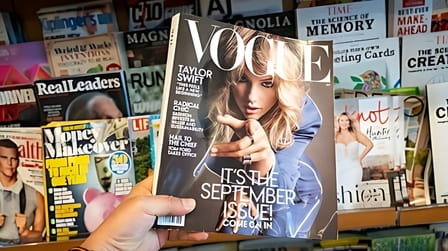The Best Way To Choose Gifts: Solve Problems

I had a tough time deciding which socks to put on today. One pair was gifted to me by my mom on my birthday, and the other was a Christmas present from my sister. Both of them remind me of the moments I got them and the people who gave them. This thought made me wonder which gift and giver I liked more. Then, I had a revelation which totally changed how I think about picking gifts. Even socks, being the classic lousy present, can be a great gift when you wear it and remember with pleasure the person who gave them to you.
This experience made me take a closer look at gift-giving psychology, the studies about it, advice from experts, and the tips shared online. This research has brought me eight unconventional strategies for picking gifts, which I will explain in this guide.
Strategies To Make Choosing Gifts Easier

Give presents that make life simpler
Don't burden the recipient with more problems
Opt for practicality over extravagance
Don't put too much thought into it
Act when the receiver says he/she has everything
Provide gifts that keep giving
Enhance the presentation of presents
Always pick the best quality
Don't Give Extra Headaches

It's no fun having to choose something when someone gives you a gift card. It's like they're transferring their decision-making burden to you. If you feel the need to give money, then just cash would be better received. It might mean "more money, more problems," but it also gives more flexibility to the recipient.
Gifting experiences, like a massage or cooking lesson, also need to come with a schedule. Even though they may need to reschedule, it's still better than the card or certificate sitting in their wallet for months. When they see it, they won't think of you and your generosity, but feel annoyed that they need to use it.
Solve Your Recipient's Problems
The biggest mistake when picking presents for others (or for ourselves) is believing that giving more stuff makes people happier. The truth is quite the opposite. Happiness comes from getting rid of negatives, not adding positives.
When selecting gifts, find an issue in the recipient's life and solve it with your kindness. It will mean much more than offering them material goods.
Examples of Thoughtful Gifts To Please Any Recipient:
Give them a convenience: Get their knives professionally sharpened, present them with blackout blinds, or maybe invest in a handyman to take care of any small yet irritating issues – such as creaky doors, malfunctioning light switches, and leaking faucets.
Overcome boredom: Plan an eventful day or night out with the recipient and their friends – a blind taste test is a great way to make sure everyone has a fun time.
Avoid pain: Ease their pain with a physical therapy session or Alexander Technique classes if they're bothered by a sore neck.
Take responsibility: Purchase a present certificate for their pet or babysitting services so they can enjoy a few days of relief from their duties. (Careful, this isn't a great idea if your recipient views you as irresponsible).
Outsource work: Buy a voucher for meal delivery or laundry services, perfect for individuals who don't have the time or energy to do house chores. A nice wool garment could also be a great gift as they rarely need to be washed and ironed.
Environmental-friendly: Show your support to reduce waste by gifting items like Swedish dishcloths to replace paper towels, a Silpat baking mat instead of parchment paper, beeswax wrap to substitute saran wrap, and a water filter to use at home and save on buying bottled water.
Caution
Do not solve any problems that the recipient may not even be aware of!
For example, buying deodorant for a friend with body odor, mints for a colleague with bad breath, or a diet plan for your wife who you think has put on some weight is simply not a wise decision.
Is Giving Gifts A Manifestation of Your Partner’s Love Language?

It is estimated that around 20% of couples require gifts on a regular basis to feel connected and appreciated by their significant other. This notion was introduced by Gary Chapman in his book ‘The Five Love Languages’.
In the case you suspect your partner may be a part of this 20%, we recommend you to read our Five Love Languages Summary for Unsappy People.
How To Handle It When They Say “I Have All I Need”

Mothers are especially famous for claiming: “I have all I need. Just having you with me for my birthday is enough.”
It is common for us to misunderstand this statement and think: “I must go out of my way and be creative with my gift in order to demonstrate how much I care for them.” This is not the case. Avoid buying something expensive that is beyond their understanding – such as a brand-new iPad.
If you wish to be extra generous and thoughtful, comply with their request and give them what they asked for:
YOURSELF.
As the great Grant Sabatier puts it: “Time is more valuable than money. You can always get more money, but you can’t get more time.”
If you still feel like spending some money, take them out to a nice dinner, plan a surprise trip, or buy tickets to come and visit them if you live in different cities.
Additionally, you can never go wrong when you give them one of the following four things:
Plants Instead of Flowers
We are often selfish when it comes to presenting gifts. We desire the glory of being an excellent gift-giver, so we buy presents that will generate an impressive response. For example, flashy flowers.
The issue lies in the fact that the “flash” is short-lived and the recipient is left to cope with what remains.
To be selfless in your gifting, opt for a practical and enduring present - such as a plant. Even though you won’t receive the same level of admiration, your loved one will be receiving continuous rewards. Studies suggest that this surpasses any one-time dazzling present.
Examples of Practical and Appreciated Presents:
A Swiss Army knife as opposed to jewelry.
A collapsible coat – such as the popular Patagonia Nano Puff – rather than an unnecessary fashion item.
A deposit on a top-notch blender instead of settling for a mediocre option that needs to be paid in full.
Ways to be a Great Recipient
You can make it simpler for family and friends who are anxious about selecting presents for you. Here are some steps you can take:
When somebody asks what you want, don’t say “I don’t need anything.” If you're serious, and do not want a gift, explain this to them. Otherwise, contemplate a bit and provide them with a list of preferred items.
Be specific with what you want, although it can appear self-centered to give out a wish list. Deal with that feeling and they’ll be grateful.
Show your heartfelt appreciation. If it’s an unwelcome present, the gifter will be apprehensive. It won’t help to verbalize your disappointment.
Express your appreciation. Let the gifter understand that you’re thankful for the gift by sending images demonstrating that you love it.
Don’t Overthink It
Gift-givers want to make an impression, and show how well they know the recipient. The truth is, the recipient understands themselves a lot better than you do. When they tell you what they want, don’t be foolish trying to outwit them. Just give them what they asked for – even though it may appear impulsive from your perspective, it won’t to them. Research has shown that the most thoughtful presents are the ones that are asked for.
Keep on Giving
The oft-repeated phrase “it’s the thought that counts” may be partly true, but consider that the thought only counts once. What’s better is something that would keep accumulating brownie points - sentimentality.
This is not as hard as you imagine:
Give Functional Gifts
Research indicates that gifts that are useful are valued more when they are received as a gift, compared to when they are bought. An example of this would be the socks I mentioned earlier. Or, you could give a compilation of favorite recipes, an art piece, painting, print, or ceramic artwork for their new apartment.
Capture the Moment
Make the gift of an experience even more sentimental by capturing the moment. For instance, if you buy a cooking class or weekend vacation, make a photo album of it with Artifact Uprising. Or make a rap video, as we did when celebrating my mom’s 60th birthday and our Thailand holiday.
For Extra Sentimentality
When gifting for a special occasion like a retirement, graduation, or wedding, sentimentality becomes even more important and impactful.
Research shows that physical items make better gifts than experiences for such events.
Personalizing your gift would add even more heft in terms of sentimentality. But this does NOT have anything to do with your name or face. You decide to put the gift recipient’s initials on it, and consider adding the date as well.
A case in point is when Kim received the ring from her sister for her 30th birthday. It was designed by a jeweler in Vancouver, and had the birthstone, initials, and date of birth engraved inside.
Personalizing the gift makes it even more unique, and every time the gift recipient is asked about it, they’ll remember you and the special occasion that you celebrated together.
Boost Your Business With Gift Giving

John Ruhlin, a gifting expert, wrote a short and easy-to-read book called 'Giftology’. It makes an effective case for how gift-giving can be an advantageous, yet overlooked, strategy to get more referrals, interact better with customers, and stand out from competitors.
You can get a preview of his strategic advice from a podcast interview.
Make Your Presentation the Gift itself
It's not necessary to purchase an item that is particularly thoughtful; you can provide an extra special presentation to show how much you care. This will evoke emotions and form lasting memories associated with the item, providing it with extra value.
Examples
A note. Compose a heartfelt letter expressing your sincere sentiments, even if it may sound a bit cliche.
Creative wrapping. Obscure a small item in a large box, or hide it in a scavenger hunt, or give a joke present and later surprise them with the real one.
Invest in the Best Item You Can
If you decide to give a physical gift over an experience, make sure it's the highest quality one you can find. If you cannot afford the best, enlist the help of others who would be delighted to contribute and not have to worry about coming up with a present.
If funds are limited, consider getting a smaller item that offers value better and for a longer period of time.
Examples
Superior nail clippers
A bouquet of truffle oil from a luxurious food store
A sharp chef's knife that chops vegetables without smashing them
Stylish, comfortable, and functional shorts for men, according to Chris.
Recap
In Summary, these eight tips can help you choose a meaningful and thoughtful gift:
Offer Problem-Solvers
Don’t Gift Difficulties
Choose Practical rather than Flashy
Don’t Overthink It
If They Have All They Need, Get Something for Yourself
Provide Presents that Keep On Giving
Make the Presentation a Part of the Gift
Invest in the Best Quality Product
With these strategies in mind, you can come up with a couple of offerings for any special occasion.












